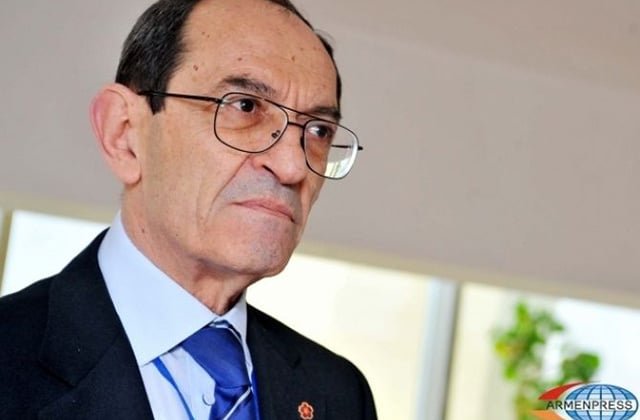1994 Ceasefire Agreement—Only a Document on the Negotiation Table

Azerbaijan cannot apply to the UN Security Council for cancellation of the 1994 ceasefire agreement, Shavarsh Kocharyan, RD Deputy MFA told Tert.am.
“The UN will not cancel the ceasefire agreement. The UN member states are supposed to respect international commitments. This is merely an attempt to get out of international commitments. The 1994 ceasefire agreement is not in Azerbaijan’s interests, as it contains the signature of Nagorno-Karabakh , which implies that Azerbaijan at least recognized Nagorno-Karabakh as a conflicting party,” Kocharyan said.
Asked about Azerbaijan’s possible intention to circulate a new draft agreement on ceasefire, which is the reason for Azerbaijan’s seeking to have the 1994 agreement canceled, Kocharyan said:
“There is no other agreement. Azerbaijan is referring to a verbal accord. But it is not an agreement (i.e. an agreement reached in Moscow following the four-day war). It was nothing, but an arrangement to observe the 1994 ceasefire agreement.”
Commenting on the Moscow-negotiated verbal agreement to conclude truce and continuous claims by Russian media outlets that Foreign Minister Sergey Lavrov, who paid an official visit to Armenia in April, brought proposals distinct from the Minsk Group package, Kocharyan dismissed those reports.
Asked to comment on the opinions that Russia’s active policies are an attempt to cast a shadow on the Minsk Group activities, the deputy minister replied, “Yes, the 94 ceasefire agreement was signed through Russia’s mediation. That’s absolutely natural as Russia perceives the region as its zone of influence. So that role has always existed. As for the allegations that he brought new documents that’s absolutely untrue. And I am really very sorry to say this. Even Lavrov’s spokesperson had said that prior to his visit,” he concluded.

























